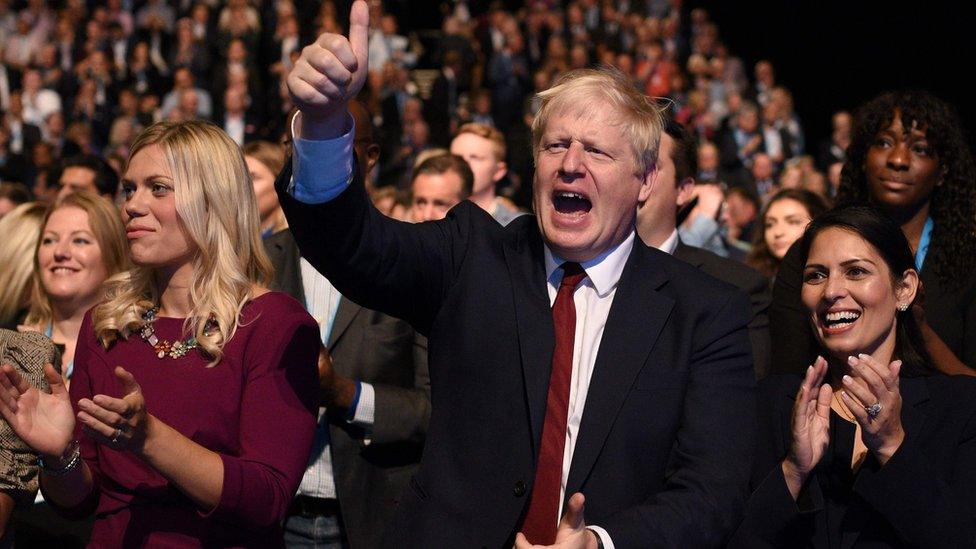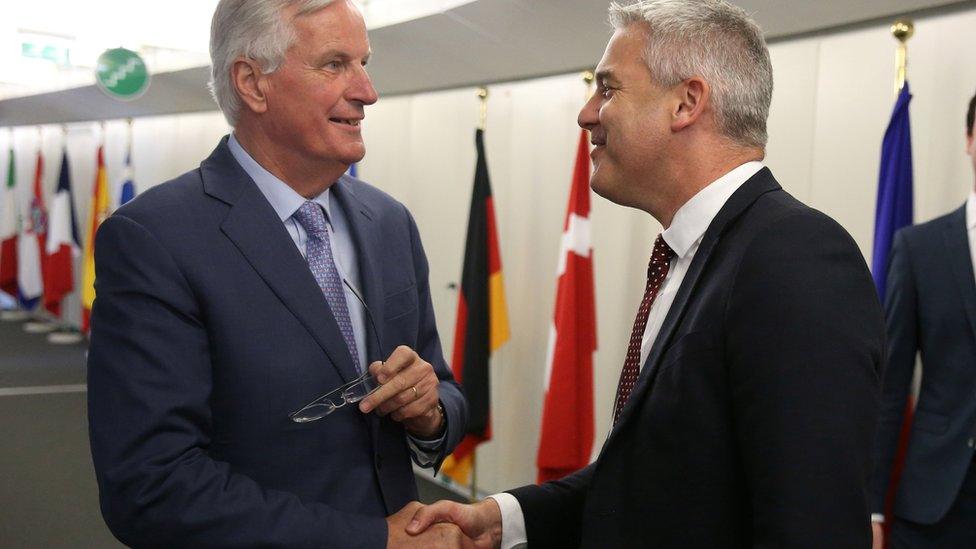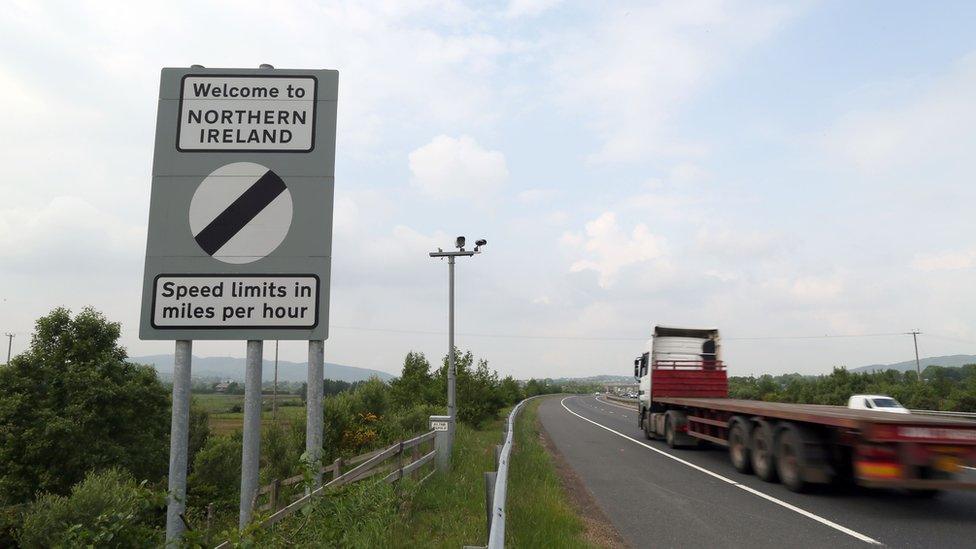Conference pledges but it's Brexit that will make or break PM
- Published

Conferences are always a parallel universe. But this week in Manchester takes that to the extreme.
On the conference platform speaker after speaker is outlining the promises the Tory party is presenting as a rough draft of their election manifesto - "schools, cops and docs" one cabinet minister joked.
But the chances of the Tory party with Boris Johnson as its leader having an uneventful week at a time like this were always extremely low.
That's not just because the prime minister has to confront allegations about his own behaviour in years gone by. But also because it's Brexit that will make or break this prime minister, and potentially this party too.
And the conversations that will decide the fate of that process are taking place elsewhere.
Despite the briefing wars of the last few weeks between London and Brussels, this process is (again you might wonder) about to reach a point of decision.
Not the final decision on whether there is a deal, but whether both sides are going genuinely to try to find a conclusion.

Brexit Secretary Stephen Barclay has been holding talks with the EU's chief Brexit negotiator Michel Barnier
I understand the government has now completed a legal text of the deal they believe could be done, after the "non-paper" papers process, which dipped the toes in the water last week.
'The tunnel'
That will be put in front of the EU in the next few days and senior government figures talk of proposals and activity being stepped up by the end of this week.
And once a proposed deal is on the table, the hope on the UK side is that the negotiators enter "the tunnel" - the process Theresa May's officials went into when the deal that was finally agreed was hammered out. Much to the frustration of the outside world (journalists included), the to and fro of the briefing war, and the pantomime was called off during that time to enable the final bits of negotiation to be completed with a relatively low level of political noise outside.
The hope then, is that could allow both sides to budge a little to reach an agreement.
And while not cheerful about the prospects of achieving an agreement, government insiders say repeatedly, perhaps wrong headedly, that the tone in private is distinctly more positive than the public criticisms of any proposals the UK has put forward.
We'll see. It is perfectly possible that the EU takes a look at the text once it lands and concludes that it just does not go far enough to meet its objectives - or shrinks back from the agreement they made with Theresa May too much to make it palatable.
Wait and see
The EU has real concerns about protecting Ireland and also the single market.

But the decision that will be made in the next few days on whether to try to get a deal over the line is a political choice as well as a policy decision.
Will they consider it worth giving Mr Johnson's deal a try? Or is it better to wait until the outcome of a likely election to make a decision.
One figure involved in the talks told me the EU's habits up until now suggest they are more likely to sit it out - wait and see.
It's not necessarily that that EU is not willing to make even tiny concessions ever, but there is consideration over when it is the right time to do so, when the political situation in the UK is so unstable.
One diplomatic source, when asked if there was a way to tweak the deal, to use the political phrase, put lipstick on the pig, told me, "we do have a lipstick in our pocket, but we can only use it once".
Timing and trust may be everything. And we may know in a matter of days, not weeks, if there is a real chance of Boris Johnson achieving a deal.
